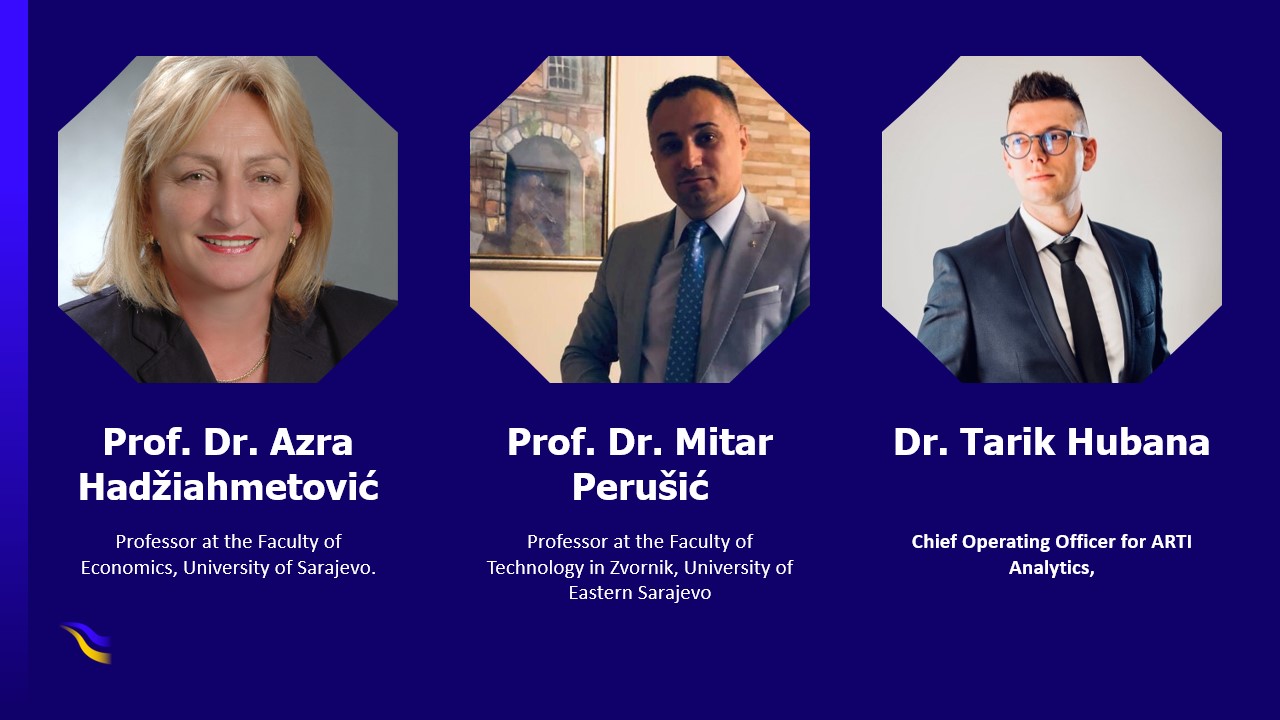

Throughout history people have tried to predict the future - from crystal balls to modern foresight methods and tools. Understanding global megatrends is essential as these long-term driving forces shape economies, businesses, and societies.
On the 28th of May, the Stockholm Environment Institute (SEI) hosted a virtual event titled “Global megatrends shaping the future in Bosnia and Herzegovina” as part of the Sustainable Transition of Bosnia and Herzegovina (BiH SuTRa) programme. This event explored the roles of megatrends and discussed what tools we can use to help us shape the future we wanted.
Megatrends highlight the direction in which the world is heading. These trends, such as technological advancements, climate change, and geopolitical shifts, impact every facet of life and require careful consideration and strategic planning.
For Bosnia and Herzegovina, understanding and adapting to these trends is vital due to the country's sensitive economy and geopolitical position. It was discussed during the event that by examining global megatrends, the country can harness the positive aspects of megatrends and prepare answers and adapt to unavoidable negative aspects and influences.
Robert Watt, Engagement Director at SEI gave the opening remarks, where he talked about the history of the institute, embedded in the trends of environmental protection and sustainability work throughout the last 50 years. He also described the SEI expertise around foresight thinking and ability to follow worldwide trends and steer research and work around those trends.
Sara Talebian, Research Associate at SEI emphasized that the future cannot be predicted but that we can explore alternative futures and shape desirable outcomes. Understanding and navigating the future is essential for making informed, strategic decisions that address both present and future challenges effectively. Foresight and adaptability can help navigate the uncertainties, but we should remember that the decisions we take today will affect the future. We should embed future-orientated approaches in strategic planning and decision-making, and it is not a one off-exercise, but ideally they should be part of regular practices. We need to cultivate this culture of using strategic foresight when planning sustainable transitions.
Marcus Carsson, Senior Research Fellow at SEI introduced the 14 global megatrends that are already observable now and will most likely have a global impact. He guided the audience briefly through these trends, introducing each shortly. These megatrends are identified by the European Commission and can be found here: Megatrends Hub.
The 14 megatrends are following:
It was also emphasized that this list is not definitive. Each megatrend consists of multiple sub-trends, some of which are more desirable while others are best avoided. The perception of these trends can vary between countries or regions, and also their impact is not similar.
Photo: Marcus Carsson, Senior Research Fellow at SEI presenting during the event
In the panel discussion three experts from the Bosnia and Herzegovina (BiH) discussed how these trends are shaping the country's future. The session was led by Saša Solujić and participated by Prof. Dr. Azra Hadžiahmetović from the Faculty of Economy at the University of Sarajevo, Prof. Dr. Mitar Perusic from the Faculty of Technology in Zvornik at the University of East Sarajevo, and Tarik Hubana, Chief Operating Officer at ARTI Analytics. Together, they examined the desirability and regional impact of various megatrends. The panel discussed how advancements in technologies and artificial intelligence are transforming industries and societies and provided examples of how global trends are impacting local industries, such as agriculture and energy. It is concluded that each of the megatrends have positive sides that could be opportunities, but the country needs to act to move towards positive direction. Megatrends also possess risks that need to be actively managed. Governance and institutions need to be strengthened so that BiH can effectively stir influence of megatrends, the trust in government and institutions need to increase, and the citizens need to take active role. Finally, it was concluded that the private sector is resilient and has a very important role in shaping the future.

Photo: Panelists of the event
How do we address megatrends in policymaking?
The third session of our event delved into the diverse nature of megatrends, focusing on strategies to steer them in beneficial directions. Central to the discussion were critical questions about which megatrends to prioritize, how to engage with them, and the potential for facilitating synergies while minimizing conflicts. The session highlighted the importance of understanding the underlying belief systems, social networks, and policies driving these trends. Panelists reflected on how these elements resonate with their previous discussions and insights, emphasizing a holistic approach to navigating and influencing megatrends effectively.
The "Global megatrends shaping the future in Bosnia and Herzegovina" event provided valuable insights into how long-term trends will influence the region, and how this can be incorporated into strategic planning and policy making, thus turning potential challenges into opportunities, ensuring a resilient and sustainable future.
See this link for more information about the speakers and the programme.
See the recording of the webinar “Global megatrends shaping the future in Bosnia and Herzegovina” below.
Discover the News and Updates section, delivering the latest updates and insightful content across various topics. Stay informed with most recent news articles, reports, and publications, of the BiH SuTra project.